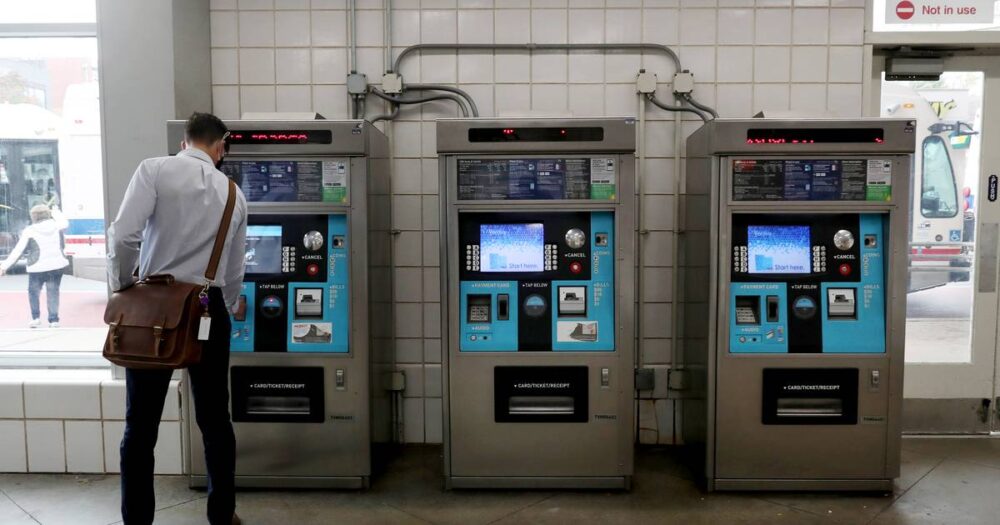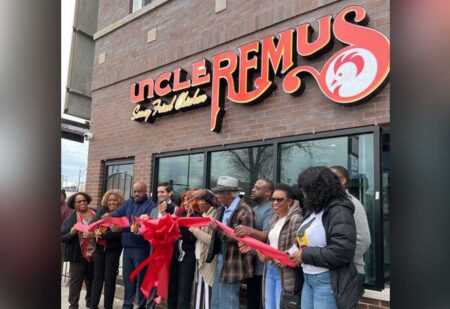A group tasked with making recommendations about the future of public transit is weighing changes to fares, sales taxes and the very concept of maintaining the CTA, Metra and Pace as separate agencies.
The ideas are on the table as the Chicago Metropolitan Agency for Planning prepares a report to lawmakers recommending changes to public transit service and funding. CMAP was tasked by the legislature with presenting the report by the start of 2024, as the region’s three public transit agencies face a looming $730 million budget hole once federal COVID-19 relief funding runs out in the coming years.
Final recommendations are still in the works, as community organizations and representatives continue to meet to hash out proposals which will then have to go through two rounds of CMAP approval. But Wednesday, CMAP provided a public update on the process to Metra board members, offering a window into some of the proposals under consideration that could shape the future of public transit in the Chicago area.
“If we want to have a strong economy in this region, we need a transit system that supports that,” said Laura Wilkison, senior director and policy adviser at CMAP.
Once finalized and sent to the state legislature, lawmakers will be able to choose which of the recommendations to enact. Some, including any increases to taxes, are likely to be politically unpopular.
Among the proposals under consideration are service changes such as improvements to the bus system and boosting compliance with the Americans with Disabilities Act. They include adding “transit ambassadors” to boost safety, and moving to a one fare system across all types of public transit, rather than the current, separate fares for the CTA, Metra and Pace.
The proposals also include calling on the transit agencies to do their part by raising fares, combined with more funding for existing free and reduced-fare programs, expanding subsidies to include lower-income riders, and other measures to keep fares affordable.
The committees hashing out the proposals are eyeing three potential sets of recommendations that come with different pricetags, ranging from $500 million to $1.5 billion in new public funding. All also call for either $200 million or $250 million from the transit agencies through fare revenue or savings.
They could recommend the additional public funding include more state money for existing free and reduced-fare programs, which the state currently only partially funds, and increased money for ADA paratransit service.
They are eyeing expanding the sales tax to include some types of services — though it would not include taxes on housing, utilities or health care, Wilkison said — and potentially also raising the rate that goes to Chicago-area transit, though that could be paired with lowering the rate in the rest of the state.
But expanding the sales tax alone won’t raise enough money, Wilkison said. The committee is considering other types of funding, including more fees on drivers such as a surcharge on vehicle registration costs that would go directly to transit.
“It is a full mobility system and you need people on transit in order for them to not be on the road, so it really is a benefit to both roadway users and transit riders for our transit system to work,” Wilkison said.
The service and funding changes would likely be paired with recommendations to change the way transit is overseen in the region. Currently, the CTA, Metra and Pace are each operated by a separate agency, and the Regional Transportation Authority coordinates financing.
The recommendations could include simply strengthening the RTA and keeping the separate agencies, or folding the three transit agencies into one regional agency.
It wouldn’t be the first recommendation to get rid of the region’s three service agencies. In 2013, the then-head of the RTA urged a state task force to consider consolidating the agencies into one, during discussions on transit funding reform.
The following year, a study by a Paris-based research agency found the Chicago area’s transportation system was hamstrung by a proliferation of local governments, the “irrational organizational structure” of the RTA and the service boards, and an antiquated formula by which transit agencies were funded.
Whether consolidating the systems would gain traction this time around remains to be seen. Wilkison said CMAP is gathering reaction from communities and riders as the agency compiles its final set of recommendations.
CMAP’s focus on the recommendations will be on transportation reliability, frequency and access, issues that have been key concerns for riders since the start of the COVID-19 pandemic. Ensuring those measures will be key to meeting the region’s climate goals, and boosting the economy, Wilkison said.
“That’s really what people want. They want access to transit, reliability and frequency,” she said. “And we’re not going to get to any of those if we can’t fund it appropriately.”
sfreishtat@chicagotribune.com







